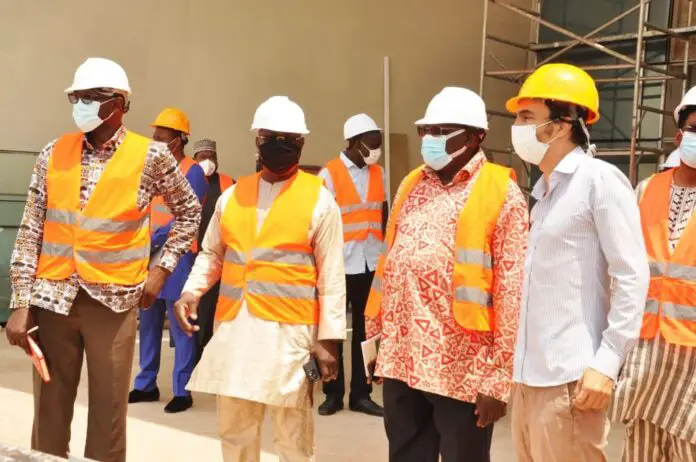The ECOWAS Commissioner for Energy and Mines, Sediko Douka, toured the WAPP Information and Coordination Center site in Abomey, Calavi, Benin, where construction works have been progressing since 2017.
Douka expressed delight with the progress of the work at the end of the inspection but voiced disappointment with the delay in the site’s handover, which was originally anticipated for 2020.
Within the scope of operationalizing the regional electricity market, WAPP Information and Coordination Center was established as an energy sales and purchase operator. The European Union provided funds for the construction in the amount of 30 million euros.
Structure of the WAPP Information and Coordination Center
The following units make up the ICC project:
- The WAPP-ICC building, also known as the administrative block, is 88 percent finished and will house WAPP and ICC offices.
- The equipment section, which includes furniture, installation, and operation of materials and software needed to run the ICC as the market system’s operator, is 94 percent complete.
Also Read: Government to escalate construction of Royal Palace Museum in Benin
The coordination room, server room, electrical system room, and market room are all part of the equipment section. The center’s total implementation rate is estimated to be 91 percent. The center’s technical equipment is planned to be finished by the end of June 2022, and the administrative block by September 2022.
WAPP’s objectives
Other approaches being developed by WAPP are aimed at harnessing ECOWAS energy potential and serving as a replica of the G5 Sahel’s Trans-Sahelian Backbone, which is part of the Desert to Power Facility.
The aim of the project is to build a trans-Sahelian energy transmission backbone throughout the G5 Sahel nations, which are Mauritania, Mali, Burkina Faso, Niger, and Chad, including regional solar parks to improve access to electricity for regions where transmission lines pass.

Leave a Reply